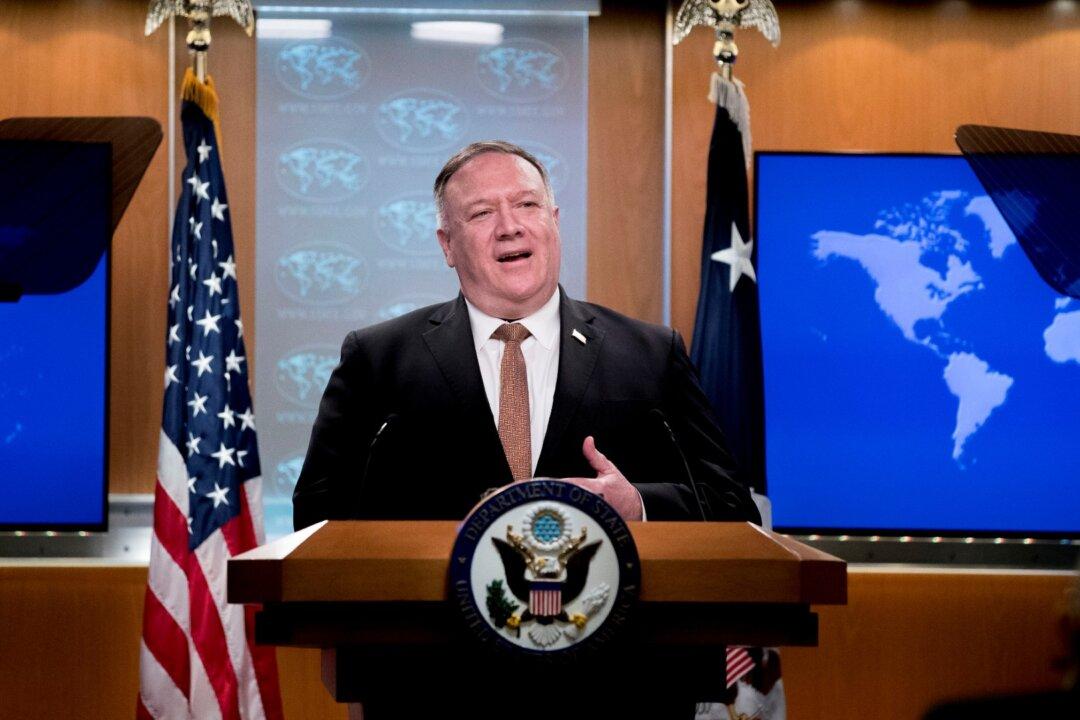The U.S. effort to build a coalition to counter the threat from the Chinese Communist Party (CCP) is building momentum as more countries become aware that their security and sovereignty are in peril if influence from authoritarian regimes is not curbed.
The United States has done a lot to “demonstrate to the world the threat that the Chinese Communist Party poses to them” and was able to turn the tide, Secretary of State Mike Pompeo said on Wednesday in a conversation at The Economic Club of New York with Marie-Josée Kravis, Chair Emeritus of the Club and a Senior fellow of the Hudson Institute.





